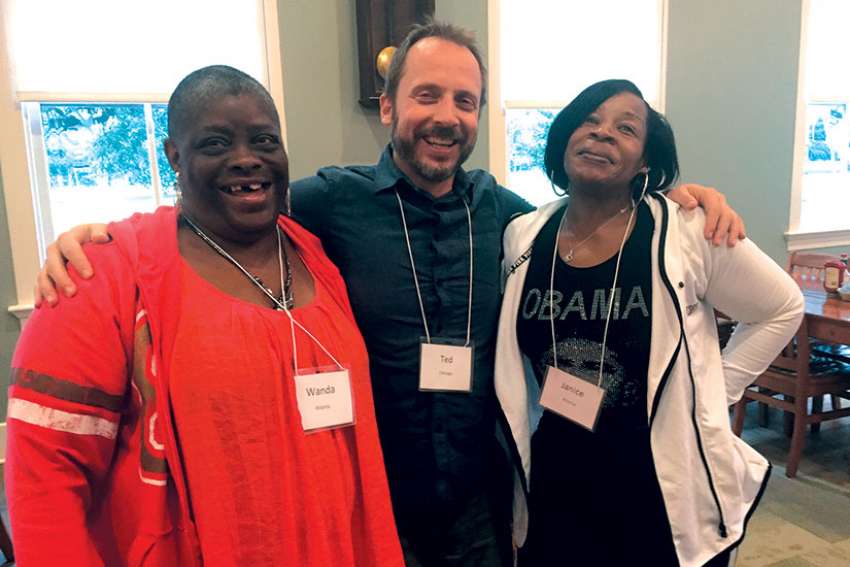“While on a physical level, many people experiencing homelessness have to spend a lot of time in very close proximity to others, it can nonetheless be very lonely,” said Ted Penton, a Jesuit in formation at Regis College. “It is very difficult to know whom you can trust ... (and) this results in a real guardedness in dealing with fellow clients. But on retreat, we hear repeatedly that people discover they are not alone.”
Much of that testimony comes from the United States, where Fr. Bill Creed and former Jesuit Ed Shurna founded the Ignatian Spirituality Project in 1998. Since its beginnings in Chicago the project has been adopted by more than 30 American cities and, most recently, Ontario.
Last November, the first Ignatian Spirituality Project (ISP) retreats for Toronto’s homeless were held in Cobourg, with separate two-day sessions for women and men.
A second instalment of the retreats was held in Guelph in February and a third round is scheduled for October. About 40 homeless people from Toronto have taken part in the project.
Typically, participants are recruited from local resident facilities.
“The case managers know their clients well enough that they can normally make excellent recommendations regarding those people who will be best suited to participate in a retreat of this nature,” said Penton, who has been working with ISP since 2013. “People who are still living on the street or in emergency shelters lack the basic stability needed to enter fully into the spirit of the retreat. The success of a retreat depends considerably on the selection of men and women who are at a place in their lives where they can benefit from this type of experience.”
Key partners of the project in Ontario include Regis College in Toronto, Villa St. Joseph in Cobourg and Loyola House in Guelph. The majority of retreatants have come from 6 St. Joseph House and Our Homes Toronto.
Penton, a key player in bringing the Ignatian Spirituality Project to Toronto, said the benefits of the retreat, particularly the discovery of compassion and companionship, have long-lasting effects.
“This sense of community can last and bear fruit well beyond the ending of the retreat itself,” he said. “The greatest success we can encounter on ISP retreats is for retreatants to leave feeling that they are loved by God and acceptance for who they are. Often this is the first time they have experienced that.”
But with the retreats lasting on average just 28 hours, those friendships must be forged feverishly fast. The project draws heavily on the concepts developed over the past eight decades at Alcoholics Anonymous meetings and similar programs such as Narcotics Anonymous.
Participants must be sober for at least 60 days prior to the retreat and be actively engaged in a recovery program. During the retreat, relationships are formed by exposing a common ground — vulnerability. This is done through sharing stories, often secrets that have “been weighing them down.”
“Sharing one’s story is the heart of the retreat and it can be a powerful experience,” said Penton. “We encourage here a frank acknowledgment of the pain of the past. Simply being heard without judgment can itself be transformative for many people.”
The stories that are shared must be “received with love rather than judgment,” a crucial step which also comes from the AA tradition, said Penton.
Danny Prowell attended a retreat in St. Louis, Missouri.
“The retreat shows you you’re not alone,” said Prowell. “I bonded with some guys … (because) these guys were thinking just like I was thinking. That was the beautiful thing about it.”
Prior to participating in the retreat, Prowell said bonding was never his motivation for interacting with others.
“I would take your wallet, take your shoes, I would take you, with no problem,” he said. “For 50 years I had no feelings. I’m different now, I have compassion for people.”
With compassion, one is able to become closer to their community and ultimately closer to God, said Penton, and “in many cases the fruits of this renewed connection to God and others leads to the healing of other relationships in retreatants’ lives.”


